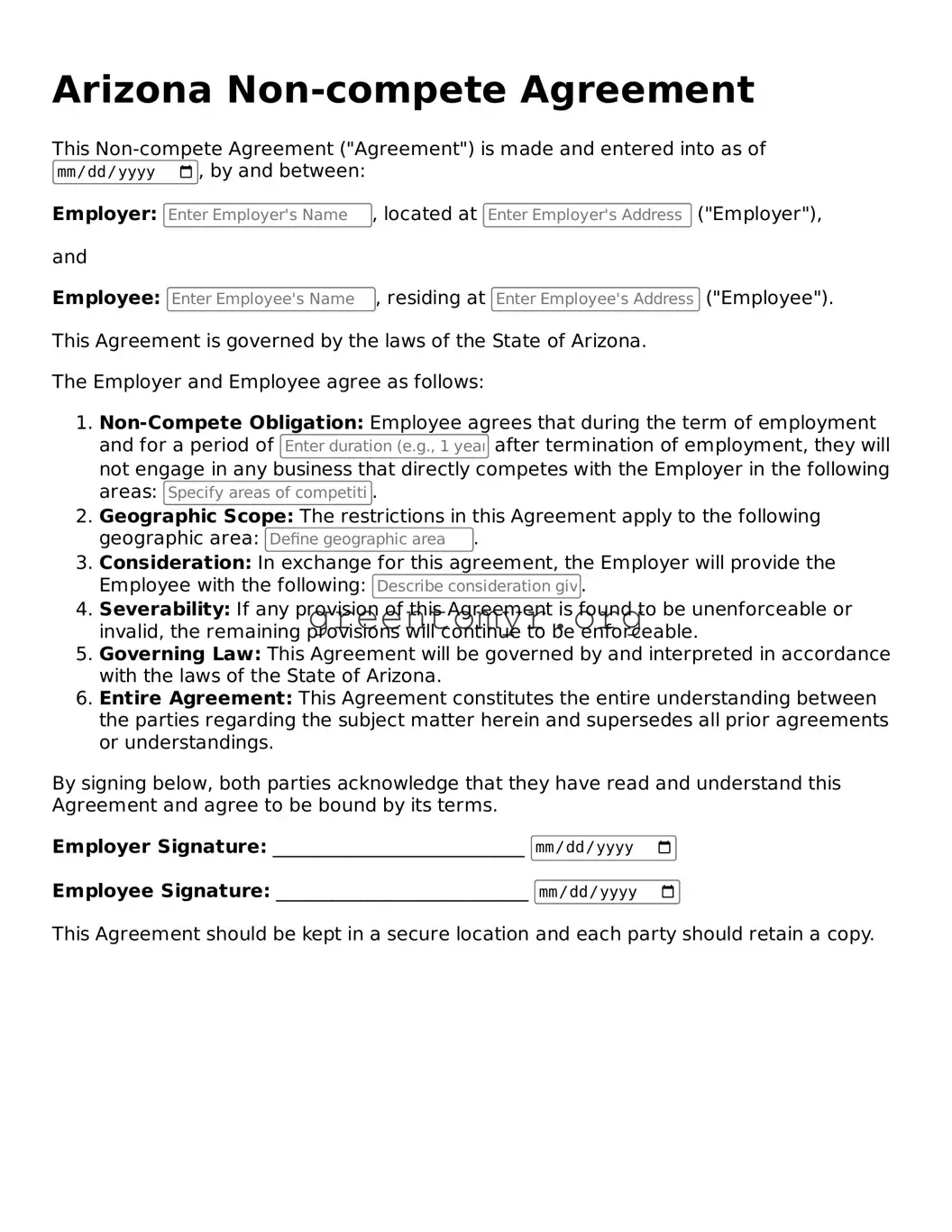Non-compete Agreement Form for the State of Arizona
A Non-compete Agreement in Arizona is a legal document that restricts an employee's ability to work in similar fields or start a competing business within a specified period and geographic area after leaving a job. This agreement is designed to protect an employer's confidential information and investments in training employees. If you are considering entering into such an agreement, it’s crucial to understand its implications and how it affects your career opportunities.
Ready to proceed? Fill out the form by clicking the button below.
